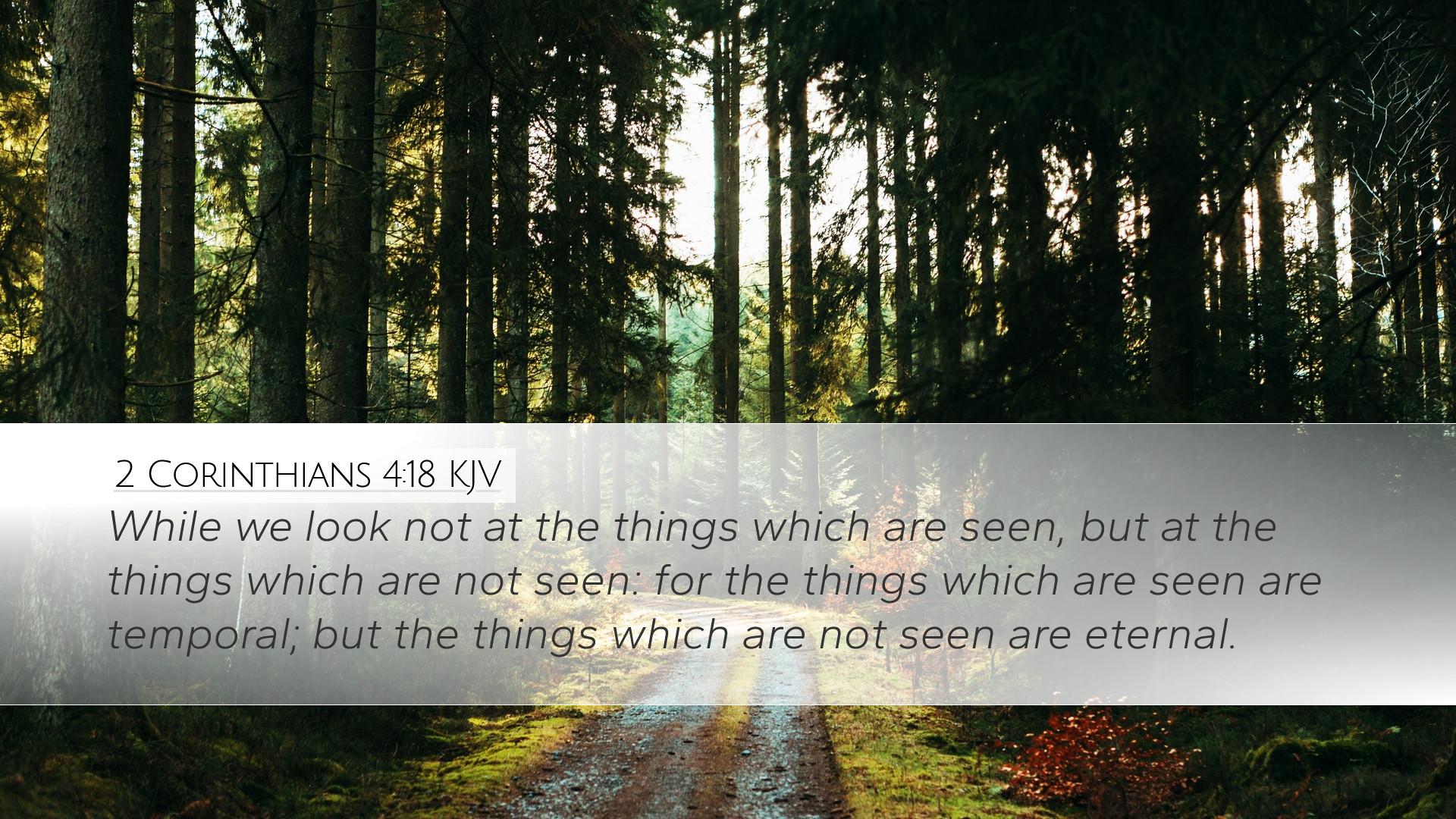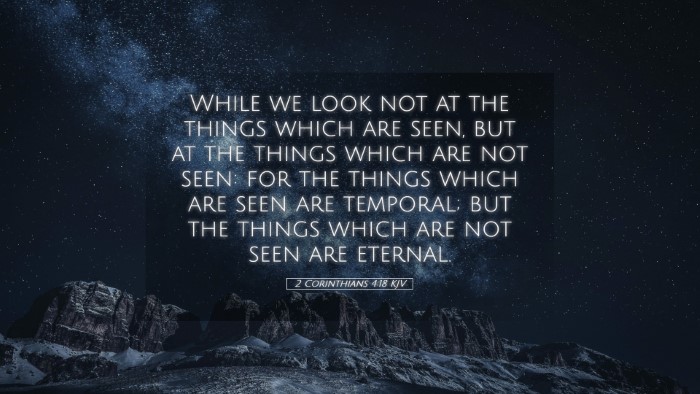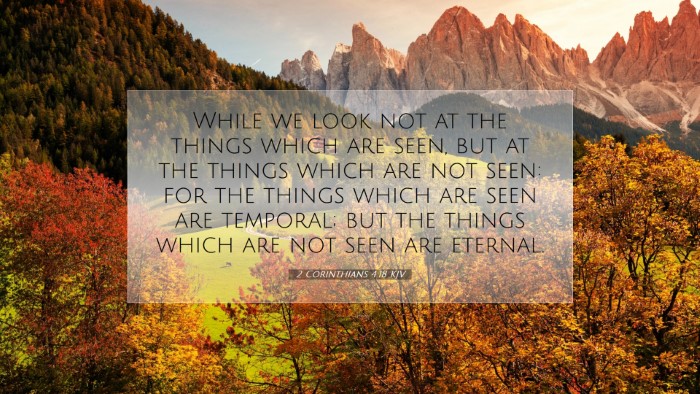Commentary on 2 Corinthians 4:18
Verse: "While we look not at the things which are seen, but at the things which are not seen: for the things which are seen are temporal; but the things which are not seen are eternal."
Introduction
The Apostle Paul, in this verse, contrasts the temporal nature of the physical world with the eternal nature of spiritual realities. This profound insight is crucial for believers who navigate the challenges of the present life while holding fast to the hope of eternity. In the following commentary, insights from public domain sources such as Matthew Henry, Albert Barnes, and Adam Clarke will be synthesized.
Contextual Analysis
This verse falls within a broader discourse in which Paul speaks about the hardships of ministry and the hope found in Christ. He emphasizes the importance of perspective—how a believer perceives their circumstances can profoundly affect their faith and endurance.
1. Present Suffering vs. Future Glory
Paul acknowledges that life includes suffering, but he calls his audience to shift their gaze from present troubles to the eternal glory that awaits them. Matthew Henry highlights the necessity of faith in viewing unseen realities, suggesting that believers must focus on spiritual truths rather than physical appearances.
2. The Nature of Visibility
Paul contrasts "things which are seen" with "things which are not seen.” Here, Albert Barnes interprets "things which are seen" as the transient aspects of life. He argues that the material world is deceptive, presenting an alluring façade that may distract believers from their ultimate purpose. Instead, the "things which are not seen" refer to the promises of God, the joy of salvation, and the spiritual rewards secured in Christ.
3. Temporal vs. Eternal
Every visible aspect of our lives—even our struggles—is temporary. Adam Clarke emphasizes this transience, reminding readers that despite the pain of current trials, these experiences are fleeting compared to the eternal joys that await believers. Clarke's commentary stresses that understanding this difference enables believers to endure with hope and resilience.
Theological Insights
This passage invites deeper theological reflection on the nature of reality and belief. Paul encourages believers to cultivate a vision of the future that sustains them through their present difficulties.
1. Faith as Sight
The act of looking at "things which are not seen" requires faith. Matthew Henry observes that the `unseen` refers to characteristics of God's kingdom that await manifestation. Faith, then, is seen as the means by which believers 'see' these realities. This perspective aligns closely with Hebrews 11:1, where faith is defined as the assurance of things hoped for, the conviction of things not seen.
2. Encouragement in Trials
Paul’s exhortation serves to encourage believers experiencing trials. Albert Barnes notes that focusing on eternal things can alleviate the burdens of distressing circumstances. This idea resonates with the believer’s journey through life, where trials serve a purpose and can ultimately lead to spiritual growth and communion with God.
3. The Eternal Perspective
The call to focus on eternal rather than temporal matters is a reminder of the ultimate purpose of life. Adam Clarke reflects that our afflictions are light in comparison to the glory of eternity. This eternal perspective is foundational for pastoral care, offering hope not only to individuals but also to congregations navigating collective struggles.
Practical Application
For pastors, students, and theologians, this passage is an invitation to embrace a perspective shaped by the gospel and to help others do the same.
1. Preaching Hope
Preaching should reflect the truth that while suffering may last for a night, joy comes in the morning. The focus must be on the redemptive work of Christ and the eternal rewards that outweigh present hardships.
2. Encouraging the Community
In community settings, leaders can guide individuals to share their burdens while also fostering an environment that emphasizes God’s promises. Encouragement can come in the form of prayer, scripture study, and mutual support focused on heavenly realities.
3. Personal Reflection and Growth
Personal application of this verse calls for regular introspection regarding where one's focus lies. Engaging in spiritual disciplines such as prayer, meditation, and meditation on scripture can redirect thoughts from temporal distractions to eternal truths.
Conclusion
2 Corinthians 4:18 is a profound reminder of the dual realities in which believers exist—the seen and the unseen. Insights from public domain commentaries reveal the potency of Paul’s message and its implications for Christian living. By focusing on the eternal, believers can navigate the trials of today with a steady hope that culminates in the glory of tomorrow.


